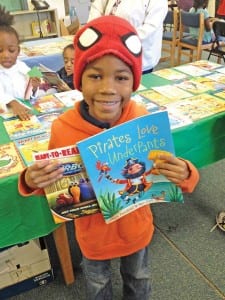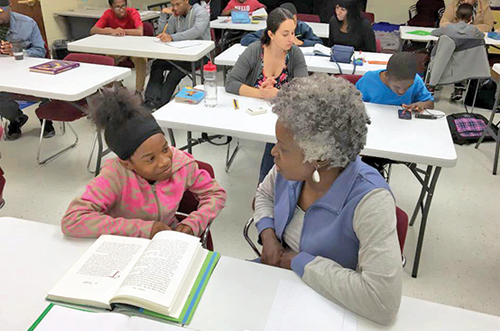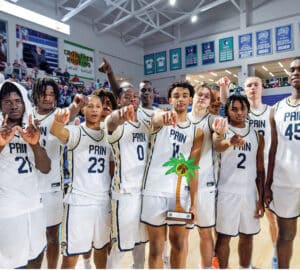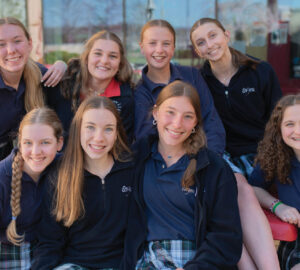Most likely the students we know have books at home and a little (or a lot) of schoolwork support from their parents. But a large group of children in the St. Louis area have never owned a book, and they have nowhere to turn when homework is too challenging. Fortunately, local nonprofits are doing their part to make sure every child has access to the basic tools of learning.
One of them, Ready to Learn, provides free books to children in underserved school districts in the area. It started with a simple concept: a group of friends wanted to give back to their local community. Now, almost five years later, the nonprofit has passed out more than 147,000 books to students in grades pre-K through 12th grade. President Elise Tierney, one of the founders, says competent reading skills are an integral part of educational success. “Some of the schools we serve don’t have a fulltime librarian or are in high-crime areas where the local library shuts down early, so kids don’t have access when they need it,” she explains. “This is a way for us to not only give students books, but also to let them know we want them to be successful.”

Its Book Buddies program targets younger children in pre-K through third grade. Students get a book paired with a stuffed animal that matches the story’s main character. These are kept at school until the end of the year, when the kids get to take them home. “They get so excited to start their very own library,” Tierney says.
The Book Day program allows Ready to Learn volunteers (many of whom are former teachers) into classrooms for distribution days, when students choose anywhere from two to eight books on average to take home. “We bring more than 1,000 books, even if we’re just serving 250 kids one day, because everyone has different interests, and we want them to find something they like,” Tierney says. “Children read, and read more often, if they are interested in the book.”
She says if a child has been a recipient of their programs multiple years in a row, it shows. “We have kids in second grade reading higher than a fifth-grade level because they’ve been getting books since preschool,” Tierney says. “We get thank you letters from kids all the time. It is the biggest privilege to serve these children, and all our volunteers feel the same way. We have an obligation to provide these children with what they need to be successful, and it all starts with reading.”
Another local nonprofit focused on children’s success is Mathews-Dickey Boys’ and Girls’ Club, which has been helping students, especially those in low-income neighborhoods, succeed in school and beyond for more than 50 years. Its beginnings were all about baseball; founders Martin Luther Mathews and the late Hubert ‘Dickey’ Ballentine knew they could keep young men off the streets by putting them on the field. The group has evolved into something much bigger today. “Our mission is to produce well-educated, physically active and hopeful young people with family at the center of everything,” says Bill Fronczak, vice president of public relations and special events. “Creating scholar athletes is part of our new strategic initiative, the Blue Chips initiative, which officially started this year,” he explains. “It’s a three-year transformation plan. We’ve taken the Mathews-Dickey model of wanting members to be successful in sports and are expanding it to create individuals well-rounded in arts, health and education.”
The center serves ages 5 through 18, and members pay a nominal $50 annual membership fee. All members in good standing receive services free of charge, including educational programs, leadership seminars, computer training, career workshops, mentoring programs, tutoring, sports leagues and more. “We believe in diversity and surrounding students with people from all walks of life, but we also strongly believe in the importance of serving low-income students,” Fronczak says. “Due to the nature of where we’re located and our affordable rates, that’s the majority of our members. Many times, insurance companies sponsor memberships so families don’t have to pay.”
Weekly tutoring services, which started back in the ‘80s, is a major program here. Community volunteers or ‘study buddies’ are paired with individual students for the Saturday sessions from 10 a.m. to noon for six weeks in both fall and spring. “They help kids with their homework or class work, work on computer skills and help with enrichment exercises,” Fronczak says. “We offer help in all subjects but are really focusing on math and reading because we’ve noticed that’s where students have the most problems, which can affect their abilities in other core subjects.”
Fronczak says with the new initiative, Mathews-Dickey is focusing on offering even more supplemental enrichment programs and partnering with various districts to bring help into the schools. “We want to offer an integrated curriculum that allows students to enjoy athletics at the heart of it all and provide support to make them feel welcome,” he says.
Photo courtesy of Mathews-Dickey Boys’ and Girls’ Club








